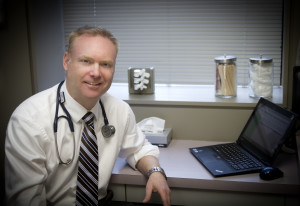 At large hospitals, one of the most senior management roles in the entire organizations is that of a Divisional Chief Medical Officer. One step below the Chief Medical Officer on a typical hospital’s career ladder, the DCMO has a large number of responsibilities that range from consulting to department oversight and regulatory compliance enforcement. The DCMO, for this reason, is one of the highest paid positions in most hospitals, and serves as the main point of contact for a very specific department or type of treatment.
At large hospitals, one of the most senior management roles in the entire organizations is that of a Divisional Chief Medical Officer. One step below the Chief Medical Officer on a typical hospital’s career ladder, the DCMO has a large number of responsibilities that range from consulting to department oversight and regulatory compliance enforcement. The DCMO, for this reason, is one of the highest paid positions in most hospitals, and serves as the main point of contact for a very specific department or type of treatment.
The DCMO: Oversight of a Very Specific Area of Medical Care
The DCMO has “divisional” in its title because it involves being the executive manager of a specific hospital department, according to the Bureau of Labor Statistics. Professionals who earn this title may be asked to oversee emergency care, diabetes treatment, or cancer treatments. As a result, they typically must be a highly educated physician and an expert in the very specific area that they are charged with managing. Most DCMOs have worked on at least one medical specialization, though many offer several medical specializations that allow them to maximize their chances of career advancement. Hospitals typically promote only the most accomplished, successful physicians in their employment to a DCMO role. Others look outside the organization, poaching successful physicians from nearby hospitals in order to ensure excellent quality of care and leadership.
Responsibilities: Hiring, Leadership, Consulting, and Compliance
The DCMO at most hospitals does not have just one responsibility. They are not a “manager” of the staff in a traditional sense. Instead, they’re a manger of various tasks and medical efforts and they must be skilled at multi-tasking for this reason. The primary responsibility of the DCMO is to make sure that their specific department is offering the highest quality of care and the best turnaround times for diagnosis and treatment. They will do this by maintaining staffing levels, consulting with department managers and physicians, and recruiting top talent from across the country to treat patients at the hospital.
Outside of ensuring patient outcomes and staff excellence, DCMOs will work on financial consulting to ensure that the department is financially sustainable. Hospitals must continually review the cost of care, both to determine what their actual costs are and to make sure that their treatment is accessible to the majority of the surrounding population. DCMOs perform this task on behalf of their departments or divisions, reporting to the Chief Medical Officer of the hospital at regular intervals.
Finally, DCMOs are always prepared to address any issues or allegations of malpractice. They may be called on to testify about their department’s staff, its qualifications, and its past performance. They may also meet with concerned patients or their families, advising them on their best care options, likely outcomes, and potential complications that may arise during treatment.
Related Resource: FEMA Corps
A Highly Important Management Role in Today’s Hospitals
Many people think of hospitals more in terms of care and disease than in terms of management and consulting. Despite this disconnect, managerial work is the key to keeping a hospital sustainable, with great treatments that work for the vast majority of its patients. A Divisional Chief Medical Officer within the hospital is the ultimate manager for specialized types of care, managing staff, consulting on costs and productivity, interacting with families during trying times, and representing the hospital’s commitment to excellent outcomes in a variety of settings.